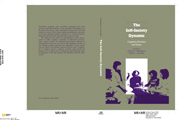Book contents
- Frontmatter
- Contents
- Contributors
- Preface and acknowledgments
- Introduction: The self–society dynamic
- 1 Exploring the relevance of social cognition for the relationship of self and society: Linking the cognitive perspective and identity theory
- 2 Toward a sociology of cognition
- 3 The cerebral self: Thinking and planning about identity-relevant activity
- 4 Growing up: The development and acquisition of social knowledge
- 5 The social contexts of self-feeling
- 6 Self-processes and emotional experiences
- 7 An affect control view of cognition and emotion
- 8 The self-concept as a basis for a theory of motivation
- 9 Attitudes, behavior, and the self
- 10 From changing selves toward changing society
- 11 Possible selves and social support: Social cognitive resources for coping and striving
- 12 Is the road to helping paved with good intentions? Or inertia?
- 13 Social structure and the moral self
- 14 The production of selves in personal relationships
- 15 Conclusion
- Indexes
13 - Social structure and the moral self
Published online by Cambridge University Press: 23 September 2009
- Frontmatter
- Contents
- Contributors
- Preface and acknowledgments
- Introduction: The self–society dynamic
- 1 Exploring the relevance of social cognition for the relationship of self and society: Linking the cognitive perspective and identity theory
- 2 Toward a sociology of cognition
- 3 The cerebral self: Thinking and planning about identity-relevant activity
- 4 Growing up: The development and acquisition of social knowledge
- 5 The social contexts of self-feeling
- 6 Self-processes and emotional experiences
- 7 An affect control view of cognition and emotion
- 8 The self-concept as a basis for a theory of motivation
- 9 Attitudes, behavior, and the self
- 10 From changing selves toward changing society
- 11 Possible selves and social support: Social cognitive resources for coping and striving
- 12 Is the road to helping paved with good intentions? Or inertia?
- 13 Social structure and the moral self
- 14 The production of selves in personal relationships
- 15 Conclusion
- Indexes
Summary
For cognitive developmentalists working in the tradition of Piaget and Kohlberg, morality is largely a matter of abstract reasoning about problems of justice and equity (see Rest, 1986, for a review). The most capable moral problem solvers in this view are those who can transcend the particulars of situations and formulate principled solutions to whatever justice and equity problems they pose. Because role taking is held to be an important part of the social cognition underlying this kind of moral problem solving, and because of his association with the concept, G. H. Mead has often been cited as providing theoretical grounding for this approach. But in fact his views are almost diametrically opposed.
Mead rejected the idea that intelligent moral action is equivalent to facility with formulas or abstract principles (see Mead, 1934: 379–389; 1908/1964; 1924–1925/1964; 1929/1964; 1930/1964). For Mead, moral action is practical problem solving – a matter of trying to reconcile within concrete situations the impulses that simultaneously impel action in different directions. He argued that although thought is necessary to generate hypotheses about how conflicting impulses might be reconciled, solving a moral problem requires linking thought to overt action. He conceived of moral development in terms of “enlarging the self” by learning how others perceive, interpret, and respond to the world – in other words, by improving role-taking abilities.
- Type
- Chapter
- Information
- The Self-Society DynamicCognition, Emotion and Action, pp. 281 - 304Publisher: Cambridge University PressPrint publication year: 1991
- 8
- Cited by

